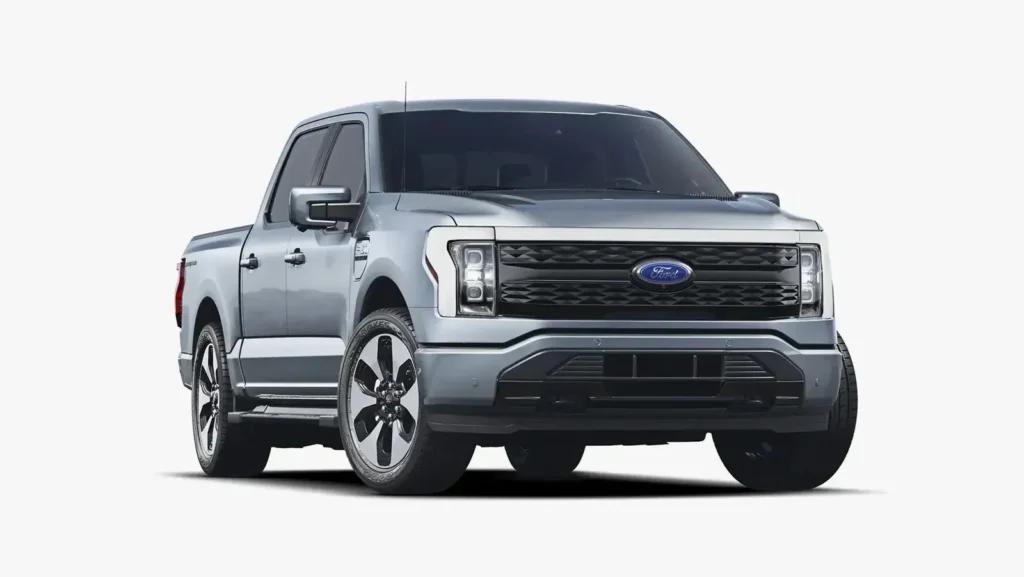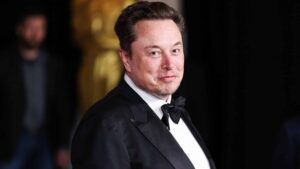Ford Motor Co. is scaling back its ambitious plans for electric vehicles (EVs) in response to weakening demand and increased competition from Chinese automakers. Despite significant growth in electric car sales in the first quarter of this year, the automaker is adjusting its strategy to focus on a broader range of vehicle options.
John Lawler, Ford’s chief financial officer, announced on a call with reporters that the company will pivot from its previously aggressive electric future. Instead, Ford will expand its lineup to include not only EVs but also hybrids, gas, and diesel vehicles.
“What we’ve learned is that customers want choice, and so we’re providing that choice with a full lineup of EVs, hybrid, electric, gas, and diesel products,” Lawler said.
Ford will retain its current electric models, including the F-150 Lightning and the Mustang Mach-E, in North America. However, the company is canceling plans for high-range all-electric SUVs with three rows of seats. These vehicles, previously described by Ford CEO Jim Farley as a “personalized bullet train,” will now be developed as hybrids. This decision will result in a non-cash charge of approximately $400 million and could lead to an additional financial impact of up to $1.5 billion.
In 2022, Ford established a 300-person “skunkworks” team in Irvine, California, tasked with developing a low-cost EV to compete with Chinese manufacturers. According to Lawler, the first product from this team will be a midsize pickup scheduled for release in 2027.
“We saw what was happening [in the market] and knew that we needed to change our approach,” Lawler said, addressing concerns about the growing prowess of Chinese automakers. “The market is changing globally, with the Chinese at overcapacity, so it’s all about being nimble, having a low cost, and multiple low-cost platforms, and adjusting as we continue to develop the transition of this industry.”
Ford’s decision reflects a broader industry trend where early adopters have already purchased EVs, and mainstream buyers remain hesitant due to concerns over range limitations and charging infrastructure. Additionally, early adopters face steep depreciation, with some EVs losing up to 50 percent of their value within the first year.
ADVERTISEMENT
In response to these challenges, Ford has stated it will adjust its EV rollout to ensure a capital-efficient and profitable business model. The company has acknowledged the competitive advantages of Chinese automakers, including their cost structures, vertical integration, and advanced battery technologies.
By halting the development of its three-row SUV and delaying the launch of a next-generation pickup, Ford aims to mitigate losses from its previous EV strategies, which had promised an all-electric future in Europe.
“It’s coming back to understanding the customer, understanding how this is going to transition over time,” Lawler said. “It’s about providing them with choices that meet their duty cycles and needs, and that is giving them options between full battery electric vehicles and hybrid technologies.”
Looking ahead, Ford will not launch any new EVs unless they can achieve profitability within 12 months of their introduction. The company plans to introduce multiple electric vehicles in Europe this year, including the EU-only Ford Explorer EV and the Capri, which is built on a platform borrowed from Volkswagen’s ID.4.
Ford is also postponing the launch of its T3 electric truck, originally scheduled for production in 2025, to the second half of 2027. The truck will be assembled at the BlueOval City’s Tennessee Electric Vehicle Center. Additionally, the company is set to produce an all-new, fully electric commercial van beginning in 2026 in Ohio.
Lawler emphasized Ford’s commitment to offering a range of powertrain options, including gas and diesel vehicles, to meet ongoing demand. “Our focus is to remake Ford into a high-growth, higher-margin, more capital-efficient, and durable business,” he said.
ADVERTISEMENT
The move to recalibrate its EV strategy comes as other automakers, such as General Motors and Honda, also shift their focus. GM recently prioritized hybrids over a previously planned low-cost EV partnership, while VW of America advocates for a balanced approach to electrification.
Ford’s strategic pivot underscores the challenges facing the auto industry as it navigates the evolving landscape of electric mobility and competitive pressures from global players.









